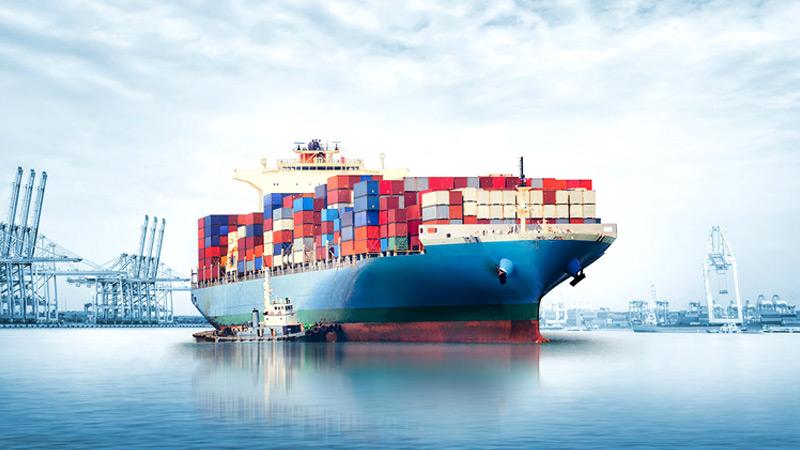
President Gotabaya Rajapaksa recently appointed Prabhash Subasinghe, Managing Director of Global Rubber Industries, to the Presidential Task Force for Economic Revival and Poverty Alleviation to work alongside, Basil Rajapaksa, Chairman of the Economic Revival and Poverty Eradication Task Force. This move ensures that the right measures are carried out by the Government to revive the economy and strengthen it to make greater strides in development.
Alongside these measures, President Rajapaksa’s appointment of the Task Force on Economic Revival and Poverty Eradication is meant to work against the economic downturn in the country due to the Covid-19 pandemic which has caused a hiatus in the economic activities of the country.
The Government has recognised the significant role played by value added exports to build the country’s economy post Covid-19. Hence, companies with a global presence have been acknowledged as key levers in reviving Sri Lanka’s economy by leveraging value-added exports.
According to a recent statement by the President’s office: “The Task Force is responsible for reviving the economy and eradicating poverty while paying special attention to the challenges posed and opportunities emerged in Sri Lanka in the wake of the Covid–19 outbreak.” The Task Force believes that global companies with a local footprint need to fast track their value-added export initiatives to align with the Government’s imperatives. Under these measures and the guidance of Basil Rajapaksa, several multinational companies have been fast-tracking the execution of their value-added export strategies. In the past, Sri Lanka has imported goods that could potentially be produced locally, hence, this period provides a window of opportunity for the country to be both self-sufficient and economically stable.
To practically implement this initiative, Basil Rajapaksa visited two factories which are leaders in the export arena of Sri Lanka. The first was the New Zealand cooperative and biggest importer of milk powder to Sri Lanka, Fonterra Brands Lanka, which has now initiated the export of value-added dairy products to South Asian countries. The second was Global Rubber Industries (GRI), whose advanced production plant is the largest to produce high-grade speciality tyres and the first to produce radial agriculture tyres in Sri Lanka.
Policy framework on export expansion
The first priority of the National Policy Framework is ensuring the growth of the country’s economy, paying attention to which exports can leverage a competitive advantages if given the rightful recognition. It is imperative for the Government to ensure the ownership of strategic assets and economically important natural resources. Under the guidelines of the policy framework on export expansion, the Government has also granted low interest loans for small to medium scale businesses, while the bank lending rates have been brought down to single digits, enabling local entrepreneurs to invest in the expansion of exports. The overall objective under the National Policy Framework is to develop a national economic policy for the benefit of the present and future generations. This will help to ensure people’s ownership of the country’s economic resources, strengthen local enterprises and secure the insurance of national assets. According to the ‘National Policy Framework Vistas of Prosperity and Splendour’; the macroeconomic targets for 2025 include the achievement of an economic growth at 6.5 per cent or higher, per capita income exceeding USD 6,500, unemployment remaining below 4 per cent and the budget deficit remaining less than 4 percent of GDP. To achieve these set targets, it is important to have both the public and private sectors’support to stabilisethe country’s expansion by means of value-added exports.
Macroeconomic policy framework
The macroeconomic policy framework thereby must ensure that the Government sees to the eradication of the debt-trap, promoting domestic investments while reducing import expenditures and raising export incomes. Alongside these measures, it is important to reduce the budget deficit, eliminating unnecessary government expenditure while securing financing for essential expenditures and prioritising state investments. Similarly, priority should be given to reducing the trade deficit, promoting domestic resource-based exports, and expanding the export economy by enhancing value-added industries.
In addition to local players, there are also several multinational companies who are key players in the international markets, who have the potential to contribute towards the local sector. Therefore, it is important for both the Government and private sector to work hand in hand to strengthen the country’s economy through value-added exports. In accordance with this, the Government and the private sector can promote pre-contract systems along value chains, set up new strategies to facilitate product marketing, and control imports of agricultural products to maintain reasonable stability in the prices of the relevant product categories.
It is equally important to make the country self-sufficient in the relevant products while introducing internationally accepted organic product certification systems and a plan for execution that combines the state and private sector institutions efforts to minimise wastage of products in harvesting, transport and delivery of local products.
This special Task Force has been established with the aim of creating a new economic agenda for Sri Lanka to promote exports in all sectors and uplift local industries, as global trends change and evolve due to the current Covid-19 pandemic.
Among the many strategic thrusts of the Task Force, one of the most imperative focus areas remains the need to identify favourable economic prospects and formulate mechanisms to promote value-added export products according to the opportunities that have emerged in line with shifting global trends.
